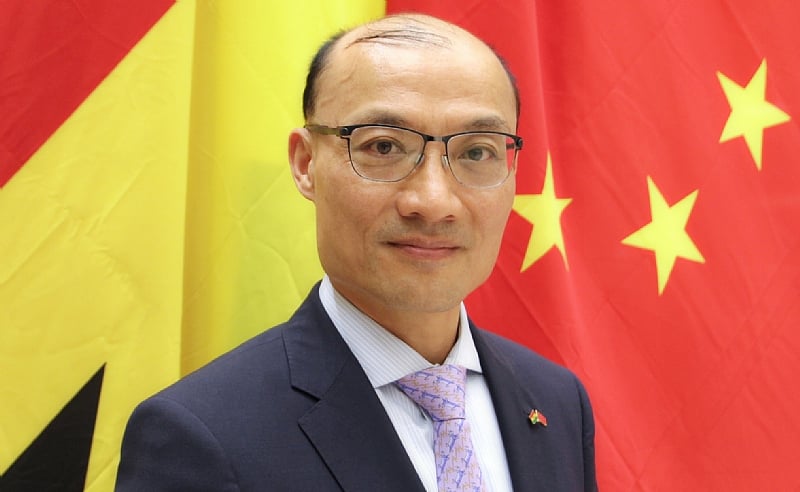Ghana and China have reaffirmed their enduring bilateral ties as they mark the 65th anniversary of diplomatic relations, with both countries committing to deepen cooperation in what has been declared a “New Era” of strategic partnership.
In a commemorative statement released by the Chinese Ambassador to Ghana, H.E. Tong Defa, the occasion was described as a significant milestone in China-Ghana relations—one that pays tribute to a “time-honored friendship” forged by visionary leaders such as Chairman Mao Zedong, Premier Zhou Enlai, and Ghana’s founding President, Dr. Kwame Nkrumah.
“Today, 5th July, marks the 65th anniversary of the establishment of diplomatic relations between the People’s Republic of China and the Republic of Ghana,” Ambassador Tong noted. “The traditional friendship between the two countries was jointly forged by the older generation of leaders… and has only grown stronger with time.”
Deepening Political and Economic Ties
The ambassador highlighted several milestones over the past year, including the elevation of bilateral relations to a “strategic partnership” in September 2024, and the January 2025 visit of Chinese Special Envoy Hao Mingjin to attend the inauguration of President John Dramani Mahama. That visit, he noted, was symbolic of “deepening political mutual trust and high-level exchanges.”
Further demonstrating the growing diplomatic warmth, Chinese Foreign Minister Wang Yi met Ghana’s Foreign Minister, Samuel Okudzeto Ablakwa, in June 2025 to reaffirm commitments under the Forum on China-Africa Cooperation (FOCAC) and align strategies in support of the Global South. Ghana’s steadfast adherence to the One-China policy and China’s endorsement of Ghana’s anti-colonial and Pan-African principles were also reiterated.
A Surge in Economic Cooperation
China has consolidated its position as Ghana’s largest trading partner and a major source of foreign investment. Bilateral trade reached a record $11.8 billion in 2024, with year-on-year growth of 7.1%. Chinese investment spans infrastructure, manufacturing, green energy, aviation, and mining.
Projects like the Sunon Asogli Power Plant, which generated 2.6 billion kilowatt-hours last year, and Africa World Airlines, which served over 500,000 passengers, were cited as major contributions to Ghana’s energy security and connectivity.
The commissioning of the Shandong Gold Namdini mine in Northern Ghana was hailed as a model of industrial cooperation and a direct outcome of commitments made by Presidents Mahama and Xi Jinping under the “Ten Partnership Initiatives.”
Boosting People-to-People Bonds
Beyond commerce and diplomacy, Ambassador Tong pointed to growing cultural and humanitarian exchanges as the “roots of bilateral friendship.” He celebrated the success of Confucius Institutes established at three Ghanaian universities, which have exposed thousands of students to Chinese language and culture.
Initiatives such as the “Warm Children’s Hearts” programme—launched by Chinese First Lady Peng Liyuan and supported locally by the Chinese Embassy and private sector—have provided critical support to orphans and vulnerable children, especially those affected by AIDS.
“Friendship between nations lies in the affinity of their peoples,” the ambassador quoted, adding that the “Chinese language fever” sweeping Ghanaian campuses was a reflection of stronger cultural ties.
Looking Forward: A Shared Future
Ambassador Tong concluded with optimism, expressing confidence that under the leadership of President Mahama and President Xi, the two nations would “work hand in hand to build an All-Weather China-Africa Community with a Shared Future.”
“Looking back, pragmatic cooperation between China and Ghana has yielded abundant results. Looking ahead, the fertile soil of friendship awaits the nurturing of new buds,” he said.
The statement sets the tone for future collaborations in governance, trade, health, education, and technology—anchored in mutual respect, sovereign equality, and a shared vision of inclusive development.
As both nations mark this landmark anniversary, the focus now shifts to operationalising their strategic partnership across the pillars of diplomacy, development, and shared prosperity.


